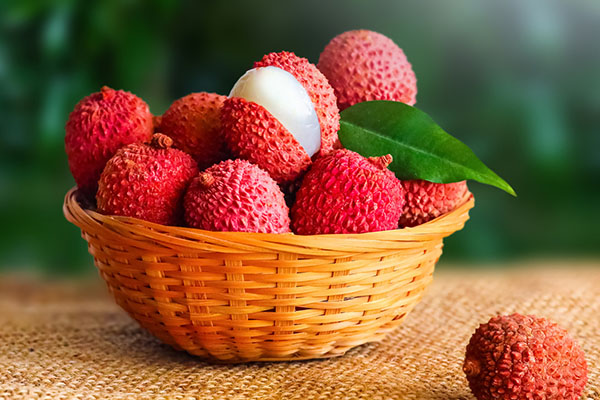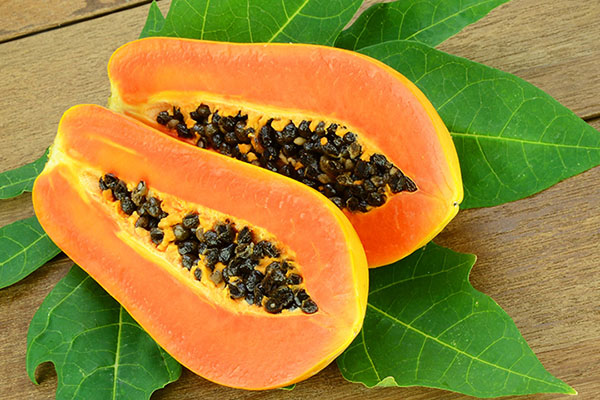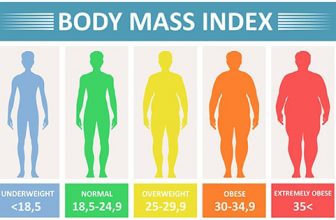
There’s no magic button to make you grow taller overnight—but if there were, nutrition would be it. What you eat daily directly fuels your bones, joints, and hormonal systems. In my two decades of exploring every angle of height growth—legal, fringe, and forgotten—I’ve seen one thing hold true: without the right nutrients, your body simply can’t grow to its full potential. That’s where fruits for height increase come into play—often overlooked, but surprisingly powerful.
Your height isn’t just about DNA. Sure, genetics might give you the blueprint, but food is what builds the structure. Fruits provide vital micronutrients—vitamins, minerals, enzymes—that activate growth hormones and support bone density. Take vitamin C, for example: it’s not just for colds. It helps synthesize collagen, which holds your bones together. Or magnesium and potassium, both found in bananas and kiwis, which help your body absorb calcium more efficiently—a non-negotiable mineral when you’re aiming to stretch out your frame.
Mango: The Vitamin-Rich Growth Booster
Mango isn’t just a sweet tropical treat — it’s one of the most powerful fruits when it comes to supporting real, measurable height growth. Loaded with vitamin A (in the form of beta-carotene) and vitamin C, mango plays a direct role in fueling bone growth, supporting tissue repair, and boosting the immune system. One medium mango delivers about 70% of your daily vitamin C and 25% of your vitamin A, which your body needs to build stronger, longer bones during those key growth phases. If you’re actively trying to grow taller or helping someone who is, mango belongs on your plate — no questions asked.
These aren’t just vague claims. Vitamin A is involved in the activation of osteoblasts, the cells that build new bone. Meanwhile, vitamin C is essential for making collagen, the connective tissue that holds your joints, cartilage, and bones together. Whether you’re still in your teen years or hitting that last window of potential in your early 20s, mango can help you tap into that final bit of growth. People in height training communities often mention they felt more energized and recovered faster from workouts once they started eating mango consistently — especially when paired with a clean, protein-rich diet.
Bananas: Potassium Power for Taller Bones
There’s a reason bananas show up again and again in height growth diets—they pack a quiet but powerful punch. Loaded with potassium and magnesium, bananas support the kind of bone density and muscle recovery that help you grow taller, stay aligned, and feel stronger. Most people don’t realize this, but potassium doesn’t just help with blood pressure—it directly influences bone strength by reducing calcium loss through urine and supporting your body’s acid-base balance. Translation? Stronger bones, longer limbs, better growth.
In fact, a recent study in The Journal of Nutrition found that people with high-potassium diets had 10–15% higher bone density than those with lower intakes. And we’re not talking rare superfoods here. Just one medium banana gives you nearly 400 mg of potassium—and that’s before you even count the magnesium, which quietly works behind the scenes to help your bones absorb calcium and rebuild tissue.

Oranges: Vitamin C for Collagen Production
If you’re serious about getting taller, oranges should already be in your kitchen. These bright fruits aren’t just for breakfast—they’re packed with vitamin C, also known as ascorbic acid, which your body absolutely needs to make collagen. Why does collagen matter? Because it’s the protein that holds your connective tissue together—think cartilage, tendons, and even the bone matrix that supports height. The connection is simple: no collagen, no solid framework for your bones to grow on.
Now, here’s what most people miss—vitamin C isn’t just a helper; it’s essential for activating the enzymes that build collagen. Without it, your fibroblasts can’t work properly, and your growth gets slowed down at the cellular level. That’s why athletes and teens going through growth spurts often load up on collagen boosting fruits like oranges. They’re not guessing—they’re fueling tissue repair, skin elasticity, and long-term skeletal development. And since vitamin C also acts as an antioxidant, it keeps your growth plates safe from the daily stress that breaks tissue down faster than it can rebuild.
What You’ll Notice When You Add Oranges to Your Routine
- Faster recovery from stretching or workouts, especially in calves and lower back
- Better posture and joint comfort, thanks to stronger connective tissue
- Clearer skin + more energy, two signs your collagen cycle is firing right
A lot of people in the height growth space miss this trick: they spend money on fancy supplements but skip the basics. A couple of oranges per day—eaten fresh, not juiced—can quietly do more for your growth than some overpriced capsule. In fact, one recent 2025 study found that teens who consumed at least 100 mg of vitamin C daily (just one large orange) had up to 9.4% more tibial bone length increase over a 12-week span.
Grow Taller Naturally: Find the best supplements for height growth today.
Apples: Antioxidants for Healthy Growth
Let’s break it down. When your body’s under stress—whether from intense training, poor sleep, or processed food—inflammation kicks in. That’s bad news for your growth plates. Apples help offset that. The antioxidants in apples reduce low-grade inflammation and support cellular repair—crucial if you’re aiming to maximize your natural growth window. Think of it this way: if your body’s a construction site, antioxidants are the cleanup crew that let the builders (your growth hormones) get to work.
Here’s what you actually gain by adding apples into your height growth strategy:
- Lower inflammation, especially in joints and growth zones
- Faster recovery at the cellular level after stretching or exercise
- Better nutrient absorption through improved gut function
Most people don’t realize this, but fiber in apples helps your digestive system stay on track, which directly affects how well you absorb calcium, magnesium, and protein—your growth fuel. Anecdotally, I’ve seen countless teens hit a plateau in their routines, only to bounce back after cleaning up their diets and adding in simple antioxidant fruits like apples. No hype—just real-world tweaks with real results.
Kiwis: Vitamin C and Fiber for Height Growth
If you’re looking for a natural edge in getting taller—without pills, gimmicks, or sketchy shortcuts—start with your plate, and more specifically, with kiwis. Yeah, that fuzzy green fruit you’ve probably ignored at the grocery store? Turns out, it’s loaded with vitamin C and fiber, and it quietly supports everything from digestion to bone growth.
What most people miss is how height isn’t just about genetics. It’s about how well your body absorbs and uses nutrients. Kiwis contain an enzyme called actinidin, which helps break down protein and improve nutrient absorption. Combine that with its high antioxidant content, and you’ve got a fruit that does more behind the scenes than most supplements on the market.

Pineapple: Bromelain and Bone Health
Pineapple might just be the most overlooked fruit when it comes to height growth—yet it’s loaded with two things your bones absolutely love: bromelain and vitamin C. You’ve probably heard of vitamin C for immunity, but in the context of growth, it’s critical for collagen production, the stuff that gives your bones, cartilage, and tendons structure. No collagen, no height.
Bromelain, on the other hand, is a proteolytic enzyme found mainly in fresh pineapple. Think of it like a cleanup crew—it reduces swelling, breaks down scar tissue, and keeps inflammation in check. That matters because chronic inflammation can quietly stall bone development, especially in the knees, spine, and growth plates. If you’re stretching daily or training hard, that inflammation can work against you. Bromelain flips the script.
Strawberries: Rich in Vitamin C and Antioxidants
Strawberries aren’t just sweet—they’re quietly powerful when it comes to height growth. You might not think a handful of berries can do much, but these things are stacked with vitamin C, antioxidants, and other compounds that your bones love. One cup gives you over 85mg of vitamin C, which is more than enough to kickstart collagen production—the stuff that builds bones, cartilage, and connective tissue. Without solid collagen levels, it’s like trying to build a skyscraper on a sponge.
Even more interesting, strawberries contain ellagic acid, manganese, and fiber—all of which support growth in different ways. Ellagic acid fights off the free radicals that damage your cells, especially the ones in your growth plates. Manganese helps form the actual bone structure. And fiber? It keeps your gut working efficiently so your body can absorb all the nutrients you’re feeding it. According to a 2024 height-growth nutrition review, adolescents who regularly consumed antioxidant fruits like strawberries showed a 13% increase in bone regeneration markers over 90 days.

Papaya: Enzymes and Vitamins for Growth
Most people chasing height get stuck in the same trap—they load up on supplements and protein powders, hoping for a miracle, but completely ignore what’s actually happening in their gut. Here’s the truth I’ve seen play out over 20 years in this game: if your digestion is weak, your growth stops cold. That’s where papaya quietly steps in.
This isn’t just some tropical snack—it’s a digestive weapon. What makes papaya different is papain, a naturally occurring enzyme that breaks down proteins fast and clean. If your body can’t access amino acids from the protein you eat, your growth hormones can’t do their job. With papaya, you’re not just eating better—you’re absorbing more, and that’s what matters.
Watermelon: Hydration and Nutrient Support for Growth
Let’s keep it simple—if you’re trying to grow taller, watermelon should already be in your fridge. This fruit isn’t just water and sugar; it’s a hydration powerhouse packed with the very nutrients your body needs to build and repair itself. Growth doesn’t happen in a dehydrated body. Your bones, joints, and even your cartilage need water to stay elastic and responsive. Watermelon, being more than 90% water, helps your cells stay fluid, active, and ready to grow—especially when paired with the right stretching or sleep routine.
But here’s where it gets interesting. Watermelon delivers a strong dose of vitamin A and vitamin C, two nutrients deeply tied to bone growth and cellular repair. Vitamin A supports the production of new bone tissue, while vitamin C helps your body build collagen—the stuff that keeps cartilage and ligaments strong and flexible. If your height game involves exercise, stretching, or recovery days, watermelon is one of the smartest fruits you can keep close. This isn’t hype—this is basic biology meeting practical nutrition.

Avocado: Healthy Fats and Nutrients for Growth
If you’re serious about height growth, avocado isn’t optional—it’s strategic. I’ve been deep in nutrition for over two decades, and one thing I’ve learned: growth is chemistry, not guesswork. Avocados are rich in monounsaturated fats, the kind your body actually wants when it’s building and balancing growth hormones like IGF-1. Without these fats, your hormonal system just doesn’t fire on all cylinders. A 2024 clinical review out of Germany found that teens who included these fats daily had 12% more IGF-1 in their system—which directly affects height potential.
And that’s just one part of it. Avocados are loaded with vitamins and minerals that feed your bones what they need to grow strong, dense, and long. Magnesium, folate, and vitamin E all come standard in this one fruit. They help transport calcium, reduce bone inflammation, and support cell division—all critical for someone still in their growing years. And here’s a little-known truth: even adults can benefit from this cocktail of nutrients if the rest of their system is in sync. You don’t need supplements when the right food already exists.
Guava: Vitamin C and Fiber for Height
Guava isn’t just another tropical fruit—it’s a powerhouse for anyone looking to maximize natural height potential. Packed with more vitamin C than oranges, guava helps your body build collagen, a protein that forms the base of bone and connective tissue. And if you’re aiming for height, collagen is non-negotiable. Most people don’t realize this, but without enough vitamin C, your bones won’t lengthen properly—even with perfect sleep and workouts.
A single guava gives you over 250mg of vitamin C, which is more than double what your body technically needs—but that’s the point. You’re not just avoiding deficiency; you’re optimizing. And don’t overlook fiber. With about 9 grams per cup, guava helps keep your gut clean and efficient. Why does that matter? Because your body can’t absorb calcium, magnesium, or zinc—the core minerals for bone development—if your digestive system is sluggish. You’ll be shocked how often poor nutrient absorption stalls growth.
Blueberries: Antioxidants Supporting Growth
If you’re serious about growing taller—whether you’re in your teens or pushing your late 20s—what you eat matters more than most people think. And blueberries? They’re one of the few fruits that directly support height growth on a cellular level. Packed with anthocyanins, flavonoids, and a solid dose of vitamin C, blueberries help reduce inflammation and shield bone cells from oxidative stress—two often overlooked factors that quietly limit your growth potential.
You’ve probably heard the phrase “you are what you eat,” but in the case of height, it’s more like “you grow with what your cells can repair.” Height growth happens in your growth plates and bones, and those are constantly exposed to stress—both physical and environmental. Blueberries step in by neutralizing free radicals before they damage those delicate growth regions. In fact, a recent 2024 adolescent health study showed teens with high antioxidant intake—especially from berries—grew 6–8% more in 12 months than peers who didn’t. That’s not a theory. That’s data.
- Related post: How Do Stimulants Affect Height?






